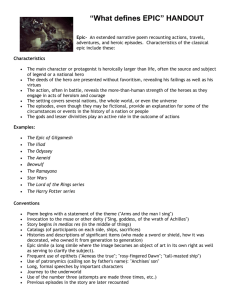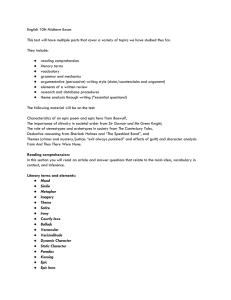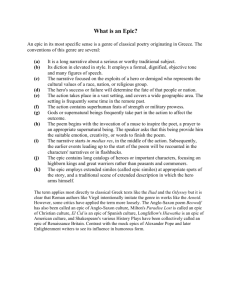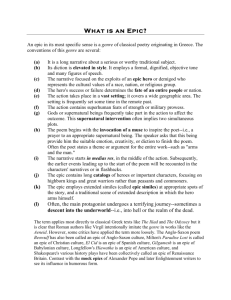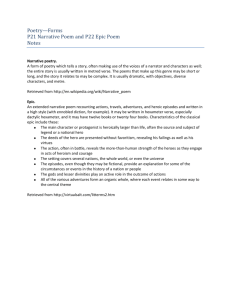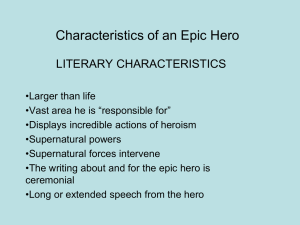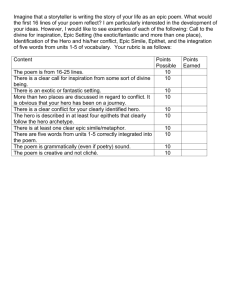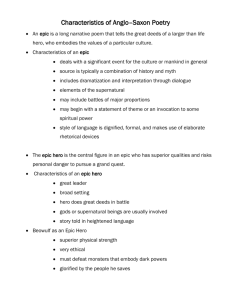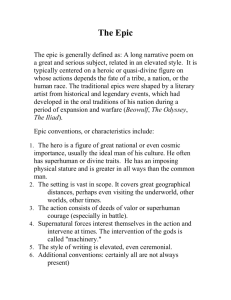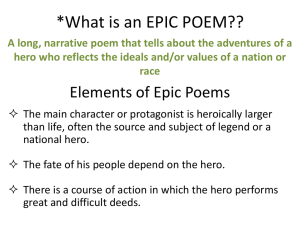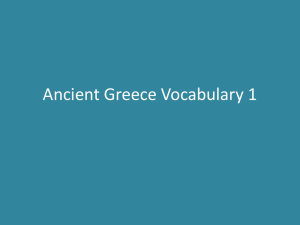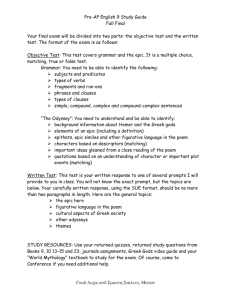What is an Epic
advertisement
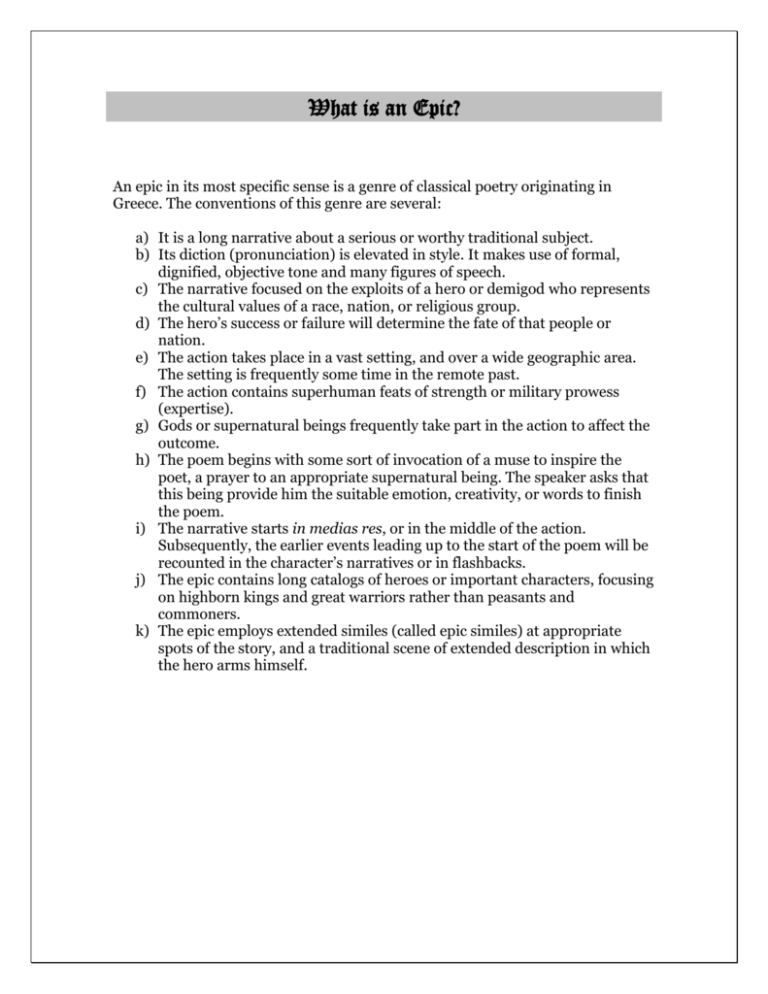
What is an Epic? An epic in its most specific sense is a genre of classical poetry originating in Greece. The conventions of this genre are several: a) It is a long narrative about a serious or worthy traditional subject. b) Its diction (pronunciation) is elevated in style. It makes use of formal, dignified, objective tone and many figures of speech. c) The narrative focused on the exploits of a hero or demigod who represents the cultural values of a race, nation, or religious group. d) The hero’s success or failure will determine the fate of that people or nation. e) The action takes place in a vast setting, and over a wide geographic area. The setting is frequently some time in the remote past. f) The action contains superhuman feats of strength or military prowess (expertise). g) Gods or supernatural beings frequently take part in the action to affect the outcome. h) The poem begins with some sort of invocation of a muse to inspire the poet, a prayer to an appropriate supernatural being. The speaker asks that this being provide him the suitable emotion, creativity, or words to finish the poem. i) The narrative starts in medias res, or in the middle of the action. Subsequently, the earlier events leading up to the start of the poem will be recounted in the character’s narratives or in flashbacks. j) The epic contains long catalogs of heroes or important characters, focusing on highborn kings and great warriors rather than peasants and commoners. k) The epic employs extended similes (called epic similes) at appropriate spots of the story, and a traditional scene of extended description in which the hero arms himself.
